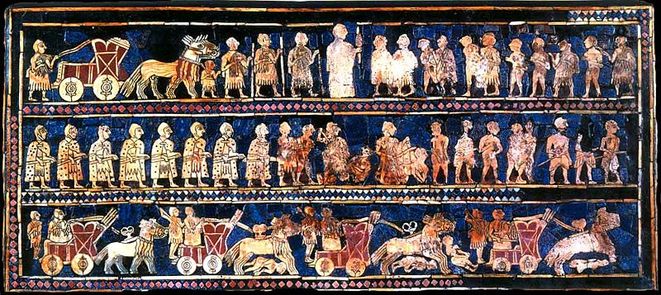 The Standard of Ur The Standard of Ur According to Genesis 11, Abraham was born approximately 250 years after the flood. However, the accounts which are recorded in chapters 10 through 25 of the book of Genesis seem to describe a region that is heavily populated. There are dozens of cities or nations mentioned by name in these accounts, and many of them are described as having their own cultures, governments and infrastructures. I have had several skeptics point out to me that it is not possible for a population to increase from just 8 individuals to a size large enough to support so many separate cultures. In fact, at the current average growth rate of 1.14%, there would only have been 136 people on earth at the time that Abraham was born. That’s certainly not enough to account for all the cities mentioned in these chapters of Genesis, and this is often cited as evidence against the biblical account. The solution to this contradiction involves two simple observations of the record given in the book of Genesis. First, the generations close to the flood had longer lifespans than we do today. And second, these generations had higher birth rates than we do today. When we combine these two observations, we can easily see the possibility that the population at the time of Abraham would be significantly higher than just 136 individuals, but the Bible actually gives us enough information to make some very reasonable estimates of just how much larger.
14 Comments
|
Bill Fortenberry is a Christian philosopher and historian in Birmingham, AL. Bill's work has been cited in several legal journals, and he has appeared as a guest on shows including The Dr. Gina Show, The Michael Hart Show, and Real Science Radio.
Contact Us if you would like to schedule Bill to speak to your church, group, or club. "Give instruction to a wise man, and he will be yet wiser: teach a just man, and he will increase in learning." (Proverbs 9:9)
Search
Topics
All
Archives
June 2024
|


 RSS Feed
RSS Feed